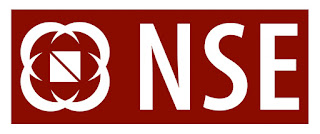 Money market is a market for debt securities that pay off in the short term usually less than one year, for example the market for 90-days treasury bills. This market encompasses the trading and issuance of short term non equity debt instruments including treasury bills, commercial papers, bankers acceptance, certificates of deposits, etc.
Money market is a market for debt securities that pay off in the short term usually less than one year, for example the market for 90-days treasury bills. This market encompasses the trading and issuance of short term non equity debt instruments including treasury bills, commercial papers, bankers acceptance, certificates of deposits, etc.
In other word we can also say that the Money Market is basically concerned with the issue and trading of securities with short term maturities or quasi-money instruments. The Instruments traded in the money-market are Treasury Bills, Certificates of Deposits (CDs), Commercial Paper (CPs), Bills of Exchange and other such instruments of short-term maturities (i.e. not exceeding 1 year with regard to the original maturity)
Capital market is a market for long-term debt and equity shares. In this market, the capital funds comprising of both equity and debt are issued and traded. This also includes private placement sources of debt and equity as well as organized markets like stock exchanges.
In the primary market, securities are offered to public for subscription for the purpose of raising capital or fund. Secondary market is an equity trading avenue in which already existing/pre- issued securities are traded amongst investors. Secondary market could be either auction or dealer market. While stock exchange is the part of an auction market, Over-the-Counter (OTC) is a part of the dealer market.
In addition to the traditional sources of capital from family and friends, startup firms are created and nurtured by Venture Capital Funds and Private Equity Funds. According to the Indian Venture Capital Association Yearbook (2003), investments of $881 million were injected into 80 companies in 2002, and investments of $470 million were injected into 56 companies in 2003. The firms which received these investments were drawn from a wide range of industries, including finance, consumer goods and health.
The growth of the venture capital and private equity mechanisms in India is critically linked to their track record for successful exits. Investments by these funds only commenced in recent years, and we are seeing a rapid buildup in a full range of channels for exit, with a mix of profitable and unprofitable outcomes. This success with exit suggests that investors will allocate increased resources to venture funds and private equity funds operating in India, who will (in turn) be able to fund the creation of new firms.